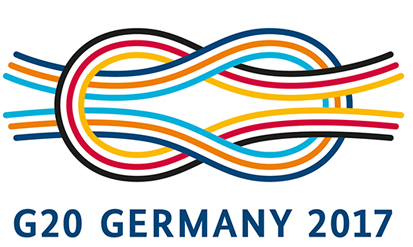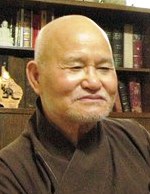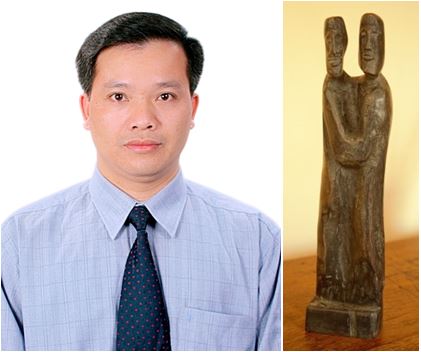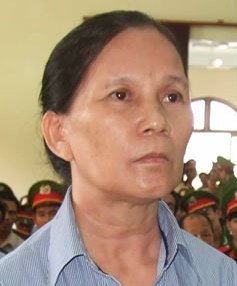 On the occasion of the G20 Summit in Hamburg (Germany) 40 human rights and civil society organizations in Europe, USA and Asia call the Vietnamese Prime minister Nguyen Xuan Phuc to immediately and unconditionally release three prominent human rights defenders from three different religious communities and all other prisoners of conscience detained in Vietnam. The Most Venerable Thích Quảng Độ, Mr. Nguyễn Văn Đài and Ms. Đỗ Thị Hồng have been arbitrarily detained, without the due process protections afforded to them under international law, the open letter states.
On the occasion of the G20 Summit in Hamburg (Germany) 40 human rights and civil society organizations in Europe, USA and Asia call the Vietnamese Prime minister Nguyen Xuan Phuc to immediately and unconditionally release three prominent human rights defenders from three different religious communities and all other prisoners of conscience detained in Vietnam. The Most Venerable Thích Quảng Độ, Mr. Nguyễn Văn Đài and Ms. Đỗ Thị Hồng have been arbitrarily detained, without the due process protections afforded to them under international law, the open letter states.
 Thích Quảng Độ, an 89 year-old Buddhist monk and leader of the independent Unified Buddhist Church of Vietnam (UBCV), is Vietnam’s longest-detained human rights defender, having been deprived of liberty in various forms for over 30 years. He is currently under house arrest without charge. He is confined to his room and is being held under extreme restrictions in the Thanh Minh Zen Monastery in Ho Chi Minh City. He has no key to the iron gate that blocks the staircase to his upper-floor room, his communications are closely monitored and he is under constant police surveillance. He is not even allowed to preach in the monastery. Thích Quảng Độ nevertheless continues to speak out for human rights and in particular religious freedom, but these long years of isolation and lack of adequate medical care have taken a heavy toll on his health.
Thích Quảng Độ, an 89 year-old Buddhist monk and leader of the independent Unified Buddhist Church of Vietnam (UBCV), is Vietnam’s longest-detained human rights defender, having been deprived of liberty in various forms for over 30 years. He is currently under house arrest without charge. He is confined to his room and is being held under extreme restrictions in the Thanh Minh Zen Monastery in Ho Chi Minh City. He has no key to the iron gate that blocks the staircase to his upper-floor room, his communications are closely monitored and he is under constant police surveillance. He is not even allowed to preach in the monastery. Thích Quảng Độ nevertheless continues to speak out for human rights and in particular religious freedom, but these long years of isolation and lack of adequate medical care have taken a heavy toll on his health.
In May 2017, Thích Quảng Độ expressed his wish to move to the UBCV’s Long Quang Pagoda in Hue so he can live beside his followers and receive the care and treatment that he badly needs. On 14 May 2017, he asked the UBCV’s secretary-general Lê Công Cầu to accompany him there. However, police intercepted the call and immediately placed Lê Công Cầu under house arrest. They told Cầu that Thích Quảng Độ was “not welcome” in Hue, and forbade him to assist the UBCV leader in any way. Lê Công Cầu held a hunger strike to protest this arbitrary police action. We urge you to ensure Thích Quảng Độ be allowed to travel to Hue and reside there, without interference by the authorities.
Police arrested 49-year-old human rights lawyer Nguyễn Văn Đài in Hanoi on 16 December 2015, on the charge of “conducting propaganda against the Socialist State of Vietnam.” Since then he has been held incommunicado, without access to lawyers of his choosing. His commitment to human rights started in 2000 when he took on the defense of a Christian who was detained after she opposed the authorities’ attempts to dissolve her worship service. Lawyer Dai offered pro bono legal advice to religious communities, fellow human rights defenders, political groups, and independent labour unions until police arrested him in 2007. In that same year, authorities sentenced him to four years in prison. After his release in 2011, he was placed under house arrest until March 2015. Despite these restrictions, he has continued his advocacy for human rights. On 5 April 2017, the German Association of Judges awarded him its Human Rights Prize for 2017. Dai’s wife was stopped by authorities at the airport and prevented from travelling to Germany to receive the prize on his behalf. The authorities should drop all charges against Nguyễn Văn Đài, and release him immediately.
 Ms. Đỗ Thị Hồng, 60 years old, is one of the leaders of a Buddhist sect Ân Đàn Đại Đạo that was founded in what was then South Vietnam in 1969 and outlawed after Communist forces took power in 1975. Police arrested Ms. Hồng in 2012 on the charge of “plotting to overthrow the government” and subsequently sentenced her to 13 years in prison, to be followed by 5 years of house arrest. She suffers from poor health in prison. In a closed trial in 2013, the sect’s founder Phan Van Thu was given a life sentence and 21 other leaders were sentenced to a collective total of 299 years in prison and 105 years of house arrest. The authorities provided as “incriminating” evidence excerpts from a sermon by the founder which referenced human rights, protection of the environment, and international law. The government also confiscated an ecological tourism park of 48 hectares with temples and assets which the community had built. The Vietnamese government should immediately and unconditionally release Đỗ Thị Hồng, and other imprisoned members of the Ân Đàn Đại Đạo sect, return confiscated property, and end harassment of the group.
Ms. Đỗ Thị Hồng, 60 years old, is one of the leaders of a Buddhist sect Ân Đàn Đại Đạo that was founded in what was then South Vietnam in 1969 and outlawed after Communist forces took power in 1975. Police arrested Ms. Hồng in 2012 on the charge of “plotting to overthrow the government” and subsequently sentenced her to 13 years in prison, to be followed by 5 years of house arrest. She suffers from poor health in prison. In a closed trial in 2013, the sect’s founder Phan Van Thu was given a life sentence and 21 other leaders were sentenced to a collective total of 299 years in prison and 105 years of house arrest. The authorities provided as “incriminating” evidence excerpts from a sermon by the founder which referenced human rights, protection of the environment, and international law. The government also confiscated an ecological tourism park of 48 hectares with temples and assets which the community had built. The Vietnamese government should immediately and unconditionally release Đỗ Thị Hồng, and other imprisoned members of the Ân Đàn Đại Đạo sect, return confiscated property, and end harassment of the group.
The signatories expressed their extreme concern:
“that these persons have been deprived of liberty under vaguely-worded “national security” clauses in Vietnam’s Penal Code that are clearly inconsistent with international human rights treaties ratified by Vietnam. This includes Articles 79, 88 and 258 of the Penal Code. These articles contradict provisions in the International Covenant on Civil and Political Rights (ICCPR), to which Vietnam is a state party, including Article 9 (1), which prohibits arbitrary deprivation of liberty; Article 18, which provides for the right to freedom of thought, conscience and religion; and Article 19, which provides for freedom of expression, respectively. While under the ICCPR the latter rights may be restricted, such restrictions are narrowly defined. The overbroad and vague “national security” clauses in Vietnam’s Penal Code, and the arbitrary way by which they are applied, clearly do not meet the requirements for restrictions under these Articles.
Despite recommendations by the international community, including at the Universal Periodic Review session on Vietnam in 2014, the government has not only failed to review these restrictive “national security” clauses, but has incorporated similar language into the newly-adopted Law on Belief and Religion that will come into force in January 2018.”
See also the open letter to the Vietnamese Prime minister Nguyen Xuan Phuc signed by 40 human rights and civil society organizations: 170630 Letter-for 3 HRD-to Vietnam PM (40 NGO)

